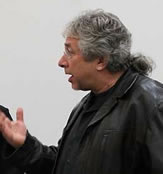No longer portrayed at risk, kids are now the risk to the existing social order where their 'toxic' culture of ignorance and recklessness justifies the surveillance and disciplinary measures taken against them. How is it that youth and youth culture, so celebrated in the 1960s, incite such fear and loathing today? Grossberg contends the war against kids may be situated in the larger struggle over modernity and the assumption of the present existing in a predictable relationship with the future. Whereas models of labour and citizenship rely on understandings of investment and political destiny, their devaluation under late capitalism represents a struggle to disconnect from the future.
As we lose faith in the future and question our responsibility to it, we are literally erasing its burden through the war against kids. Grossberg demonstrates how cultural studies and a conjunctural analysis of political, economic and social forces can help us see what is at stake in this struggle. He argues that the question of children and youth extends beyond discourses of responsibility to the very heart of imagining a future and our capacity to act on it.
 Lawrence Grossberg is the Morris Davis Distinguished Professor of Communication Studies and Cultural Studies and the Director of the Program in Cultural Studies at the University of North Carolina at Chapel Hill. He is an internationally renowned scholar of popular culture and the co-editor of the international journal Cultural Studies.
Lawrence Grossberg is the Morris Davis Distinguished Professor of Communication Studies and Cultural Studies and the Director of the Program in Cultural Studies at the University of North Carolina at Chapel Hill. He is an internationally renowned scholar of popular culture and the co-editor of the international journal Cultural Studies.
His books include It's a Sin: Essays on Postmodernism, Politics and Culture (Sydney: Power Publications, 1988),We Gotta Get Out Of This Place: Popular Conservatism and Postmodern Culture (New York: Routledge, 1992), Dancing in Spite of Myself: Essays in Popular Culture (Durham: Duke University Press, 1997), Bringing It All Back Home: Essays in Cultural Studies (Durham: Duke University Press, 1997), and MediaMaking (Thousand Oaks: Sage, 1998).
